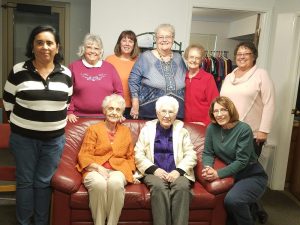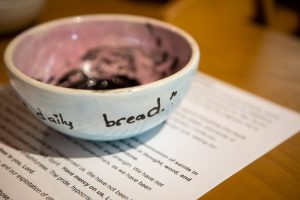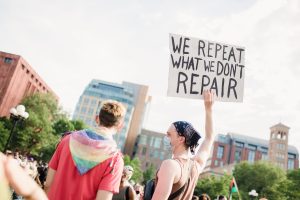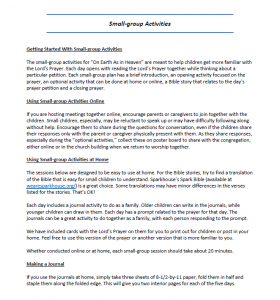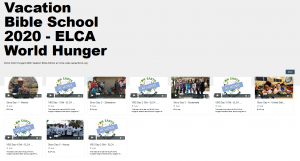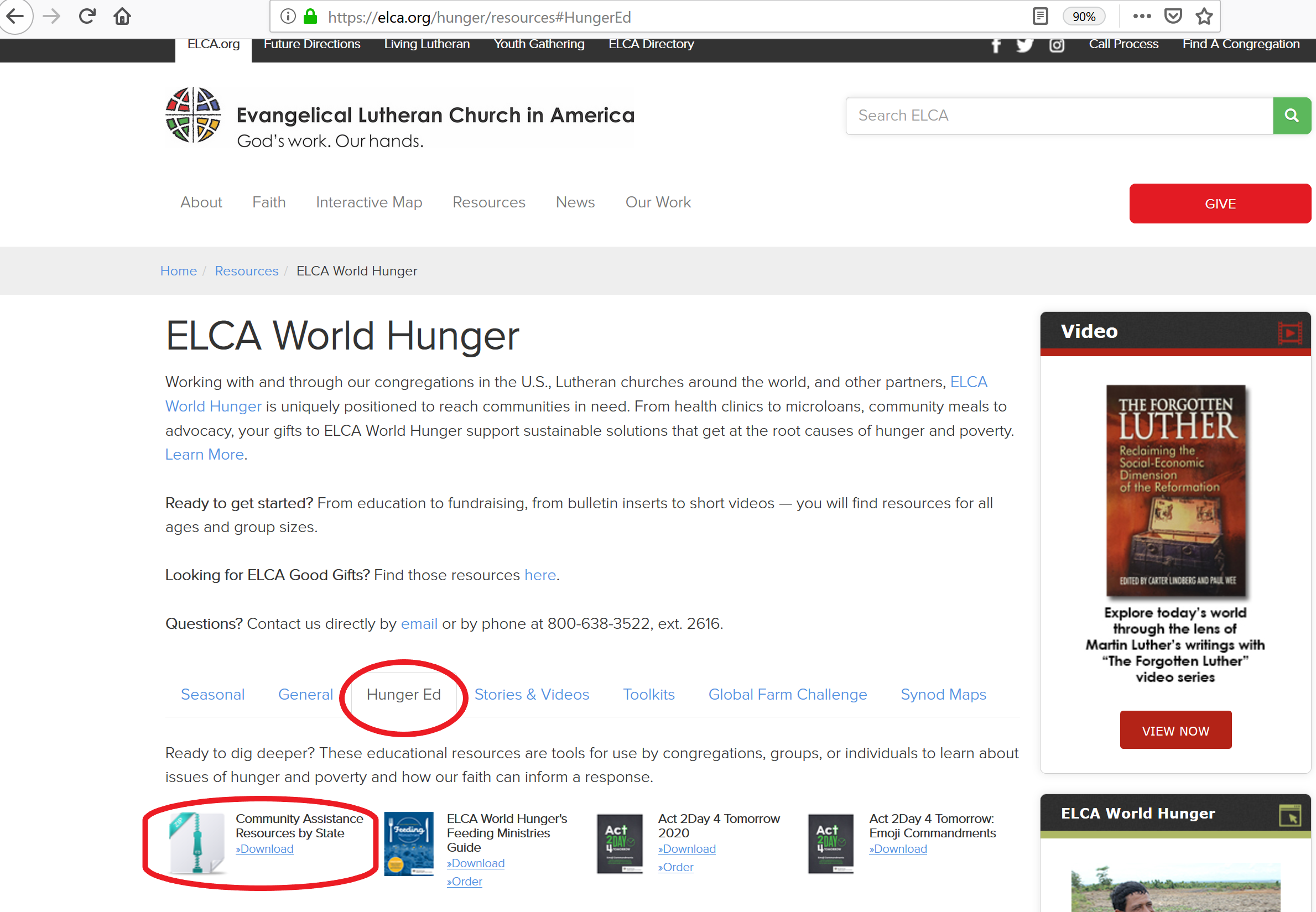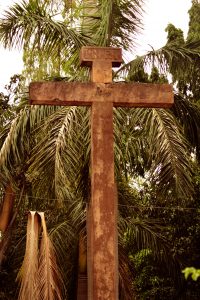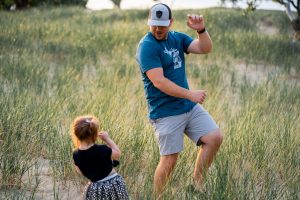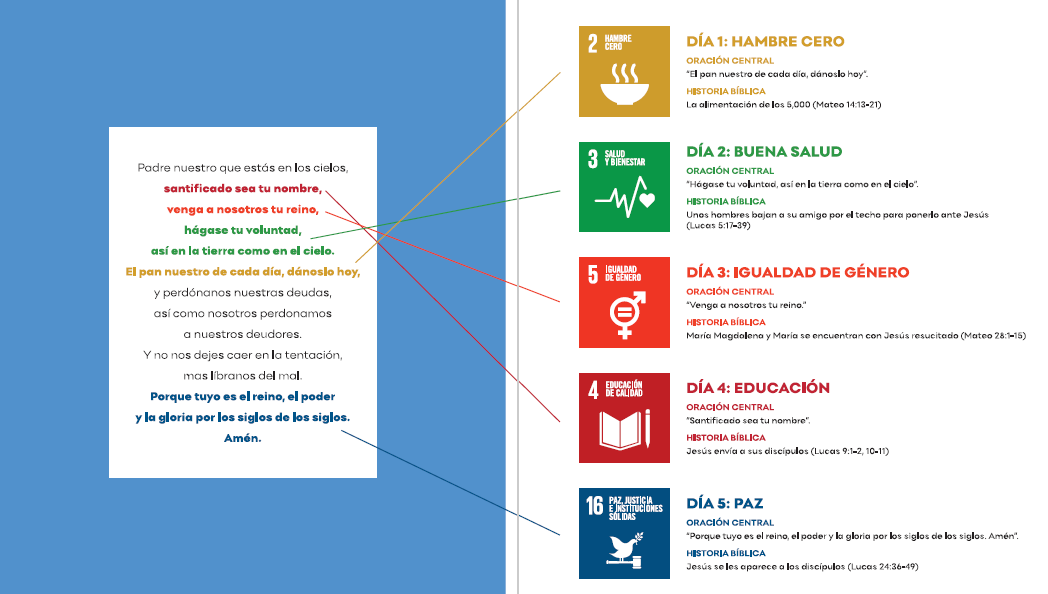Action
“They are working together, united, to show the country and the world that this is the way to fight for peace.”
Thus far this Lent, we have heard stories of God working through this church, our companions and our neighbors to end hunger. We have heard stories from India, Wisconsin and Washington, D.C., and heard of the stories that cannot be shared. We have learned that ending hunger means committing ourselves to a more inclusive vision of community, to honesty, to justice and to one another. Here, in this last week, companions from Colombia will help teach us about the final tool: action.
As much progress as the world has made to end hunger, we still have a long way to go. Nearly 690 million people around the world are undernourished, and more than 35 million people in the United States don’t know where their next meal will come from. Even before the COVID-19 pandemic, the rate of hunger around the world was on the rise after a decade of decline. With the pandemic, we have seen historic levels of unemployment, and even the most conservative forecasts warn that hunger and poverty could increase with nearly unprecedented rapidity in the coming years as we recover from its effects.
In his response to the plague that reemerged in Wittenberg in 1527, Martin Luther addressed the question of how a Christian is to act in a pandemic. After highlighting the ways God shows concern for good health in Scripture and exhorting his readers to care for their neighbors, Luther writes that prayer, though important, is not enough. Christians, he proclaims, must do more than pray. They must act.
Therefore I shall ask God mercifully to protect us. Then I shall fumigate, help purify the air, administer medicine, and take it. I shall avoid places and persons where my presence is not needed in order not to become contaminated and thus perchance infect and pollute others.
Pray. Then act.
These past 40 days of Lent commemorate the time Jesus spent in the wilderness, fasting and facing down temptation. In the first temptation, Satan placed the “famished” Jesus before a pile of stones and demanded that Jesus prove his power by turning the stones to bread that would end his hunger (Matthew 4:1-3). How tempting that must have been! How many parents with not enough food for their children would wish for such a miracle so that their family might be fed? How many of the 690 million undernourished people around the world would welcome the power to turn stones into the bread they need?
Yet the choice Jesus faced was not between stones and bread but between truth and lies. No sudden miracle will end the world’s hunger. Ending hunger is not about wishing or praying for the power to alter reality. Hunger does not end because of a miraculous intervention. It ends because of the persistent work of God with, among and through people striving for change. It is sometimes slow work, accomplished one step at a time. But it will not stop until we realize that vision of a time when we will hunger and thirst no more.
Carolina Camargo, a nurse from Villavicencio, Colombia, knows that this is what it will take. Carolina is part of the work God is doing through the Evangelical Lutheran Church in Colombia (IELCO) and the church’s Justicia y vida (Justice and Life) initiative, which is supported by ELCA World Hunger. Together with others, Carolina works toward future reconciliation in Justicia y vida’s “From War to Peace” project, which weaves ties of solidarity between the church and communities in Colombia that have been beset by violence for many years.
Carolina and other volunteers are at work in the area of Urabá, which means “promised land” in the Indigenous Embera Katío language. Since the 1990s, Urabá has witnessed a war involving the Popular Liberation Army (EPL), insurgents, the Revolutionary Armed Forces of Colombia (FARC) and paramilitary groups. The conflict led to more than 103 massacres in the region and 32,000 people displaced between 1998 and 2002. Today, social leaders remain at risk from paramilitary units over disputes involving land.
The peace process has been a long road for Colombia, and IELCO has been traveling it for many years. In San José, former combatants and their families are given a chance to start again through the work of the church. In San José de Léon, they are able to build and maintain homes and resume their former lives raising fish, pigs and chickens. It’s a chance to rebuild some of what was lost in the years of conflict.
Addressing conflict and working for peace are central to ending hunger. Conflict is one of the most significant reasons for hunger increasing around the world. When people’s lives are threatened, they do not feel safe going to work or staying home. Many are forced to migrate to protect their families. Land may be stolen or destroyed, and markets are closed or empty. Parents and workers may be injured or killed in the violence. The United Nations estimates that up to 80% of humanitarian needs around the world are caused by conflict.
Building peace is a critical step in ending hunger. But it is a difficult step to take.
Carolina has learned this through her work with IELCO. “There are people who believe that you can close your eyes and yearn for peace without making an effort towards it,” she says. “What God allowed me to know is very different from that idealism, the reality I could observe and live, expressing hope in all the people who are part of this change.” The idealistic belief that peace means simply transforming swords into plowshares ignores “the struggle against negative feelings associated with the traumatic experiences” of the people with whom Carolina works. Yet together they “walk towards the goal of peace and reconciliation.
“They are working together, united, to show the country and the world that this is the way to fight for peace.”
We know that we cannot merely declare or call for “‘Peace, peace,’ when there is no peace” (Jeremiah 6:14). Building peace and ending hunger take action within community and are fostered by the hope and trust that, with each step, God is moving our world closer to that goal.
In this study, we have read stories of people at work around the world. Their situations may differ, their needs may differ, but what unites them is the commitment to an active hope that refuses to stagnate or stay silent. It is the hope of the vulnerable guests seeking care at clinics and shelters, of women and girls in India, of advocates in Milwaukee and of peacemakers in Colombia.
It is the hope of Lent, which propels us on this arduous journey to — and beyond — the cross. This hope empowers us see a number such as 690 million hungry but to refuse to despair. It can be sustained only by our trust that God is with us in each small step, guiding us toward a promised future. In hope, we expand our vision of what it means to be “we.” In hope, we are honest about the challenges we face. In hope, we invest in our shared future. In hope, we speak up for justice.
And in hope, we act, knowing that a just world where all are fed is not just possible but promised — and knowing, too, that we are called to be part of building that future. This is not the idealistic prayer spoken but a realistic prayer lived in solidarity with one another in cities, towns, shelters, clinics, classrooms, gardens, statehouses — all the places where God is at work.
This is the prayer of an Easter people, and this is our prayer — that God will not merely turn stones into bread but build a new world on that rocky soil, a just world where all are fed.
Discussion Questions
- Think, share or journal about a time when you acted and it created a positive change. What did you do? What happened? What did it feel like?
- Where have you seen God turning prayers into action?
- Think about the prayers you share during worship. Bring one prayer to mind. How might your community turn this prayer into action? What small or large steps could you take?
- Where is there a need for action to end hunger in your community? What will it take to move this action forward?
Prayer
God of promise, God of hope, God of fullness, God of peace, guide us, your people, to be your hands and feet, to work together as you build on our rocky soil a new, just world where all are fed.
Learn more and follow ELCA World Hunger’s 40 Days of giving throughout Lent by visiting ELCA.org/40days.


